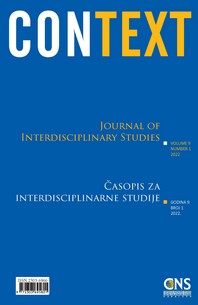Deconstructing the Myth of Immutability: Pluralistic Representations of Homo Religiosus in the Arabic Novel
Deconstructing the Myth of Immutability: Pluralistic Representations of Homo Religiosus in the Arabic Novel
Author(s): Mirza SarajkićSubject(s): Comparative Studies of Religion, Comparative Study of Literature, Other Language Literature, Philosophy of Religion, Theory of Literature
Published by: Centar za napredne studije
Keywords: Arabic novel; homo religiosus; religion; spiritual path; Tayeb Salih; Youssef Ziedan;
Summary/Abstract: The focus of this article is the perception of religious characters and motifs in the modern Arabic novel. The former is characterised as homo religiosus, and can be presented in diverse ways. In the formative phase of novels, homo religiosus is generally in a fixed state of backwardness and moral corruption, a stereotype that has formed over decades, and that wholly neglects the perspective of those whose ideology has been defeated. This unjust one-dimensionality changed in the late 1960s, with authors such as Sudanese novelist Salih Tayeb, who deconstructs the stereotypical monolithic nature of religious figures in The Wedding of Zein (1964) and Season of Migration to the North (1966). Salih allows homo religiosus to be like other people, and points to the diversity and depth of characters of religious provenance. Egyptian writer Youssef Ziedan builds upon Salih’s concept of “opening the worlds” in his 2008 novel Azazeel. A bildungsroman of a Christian religious hero, Azazeel is a detailed insight into the spiritual turmoil, paradoxes and temptations of a young monk who seeks true knowledge.
Journal: Context: časopis za interdisciplinarne studije
- Issue Year: 9/2022
- Issue No: 1
- Page Range: 7-34
- Page Count: 28
- Language: English

